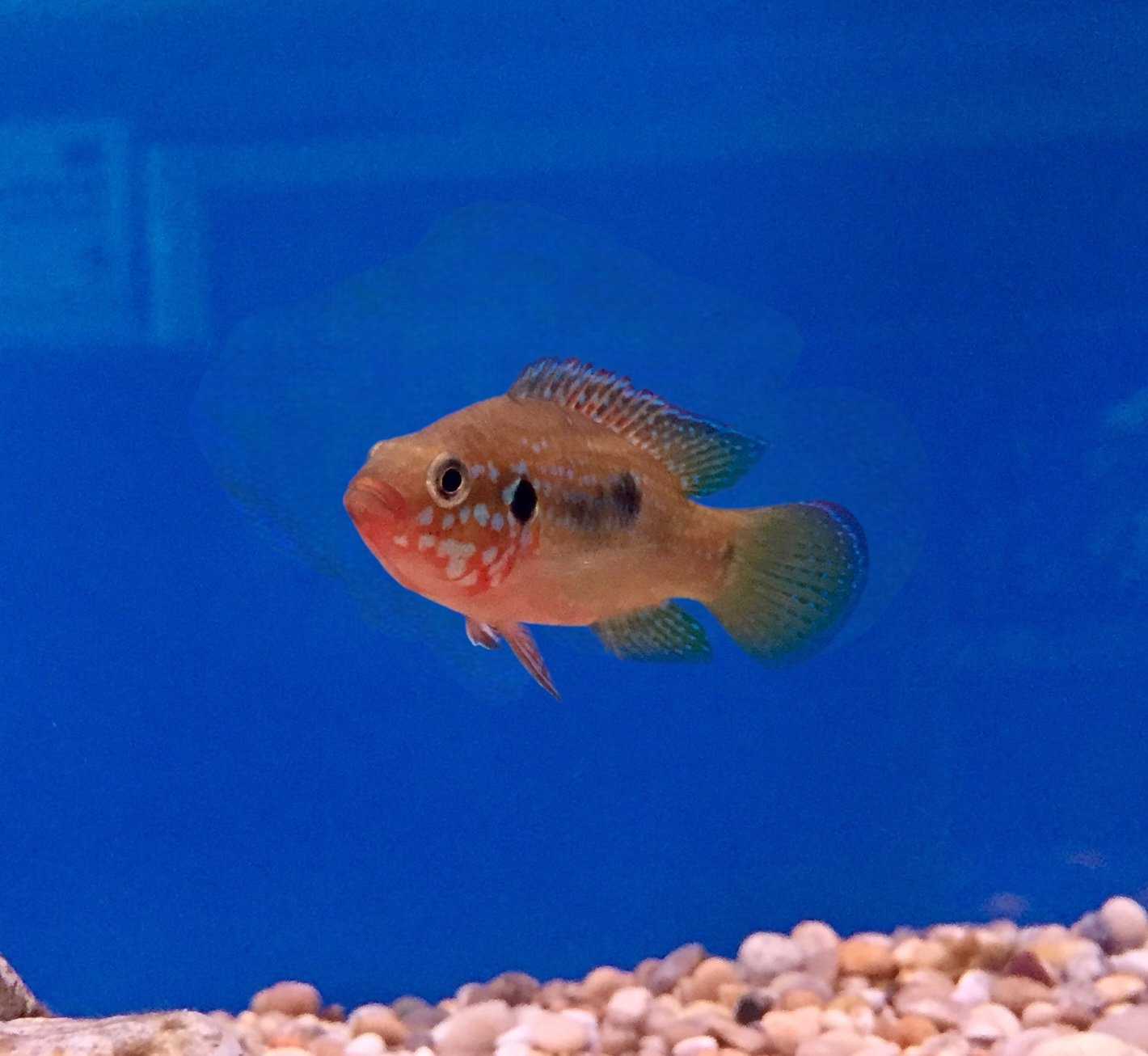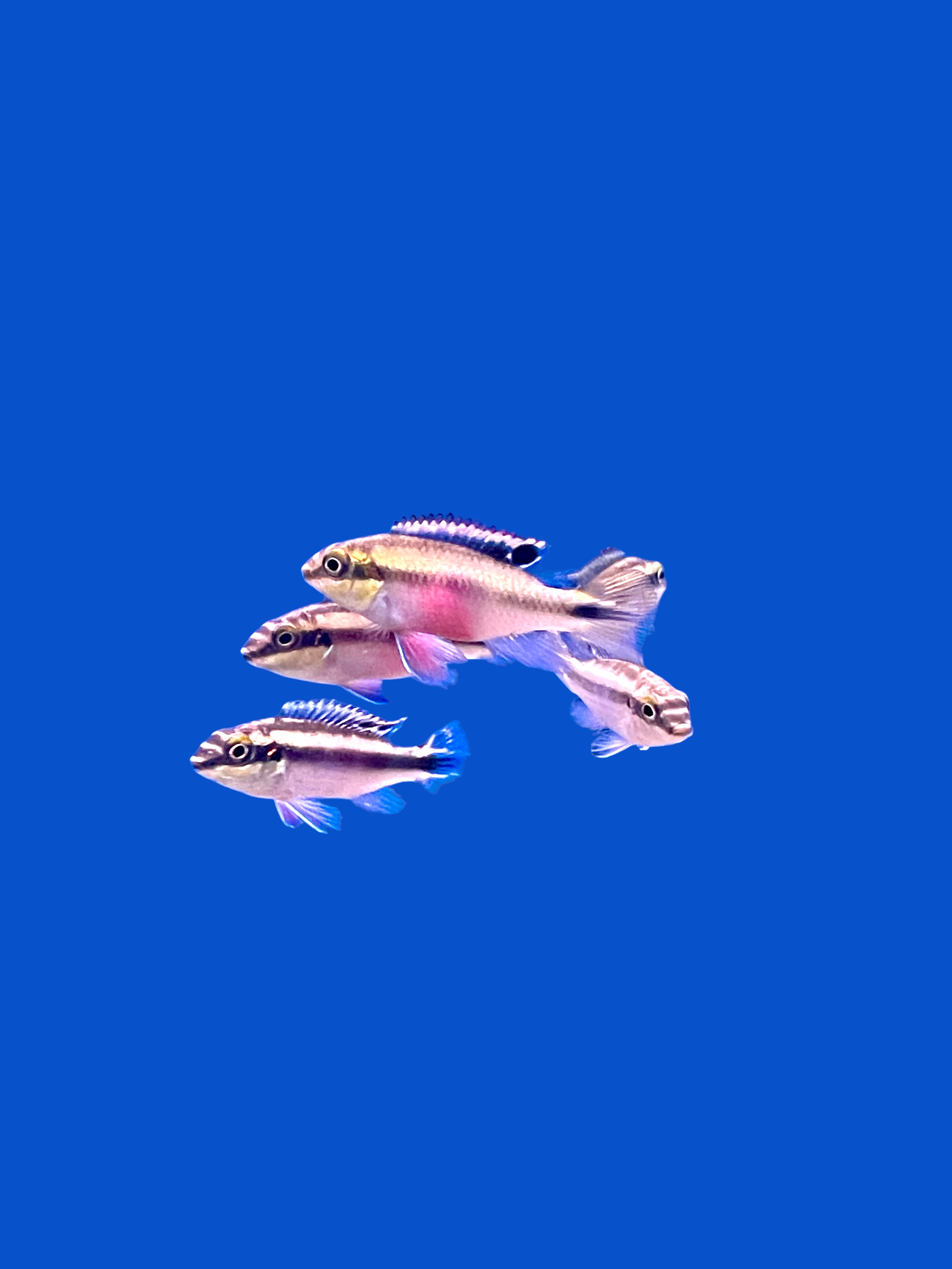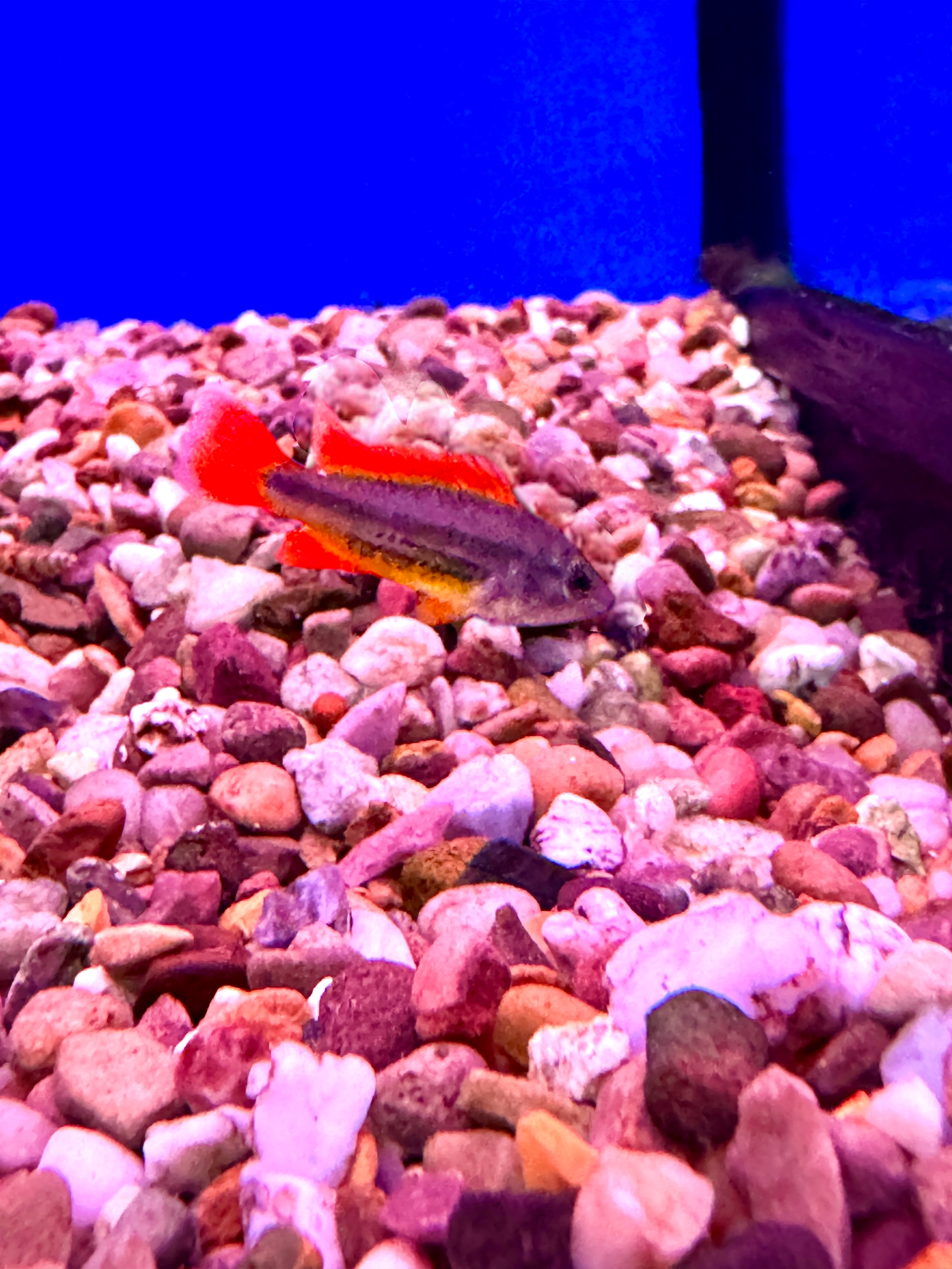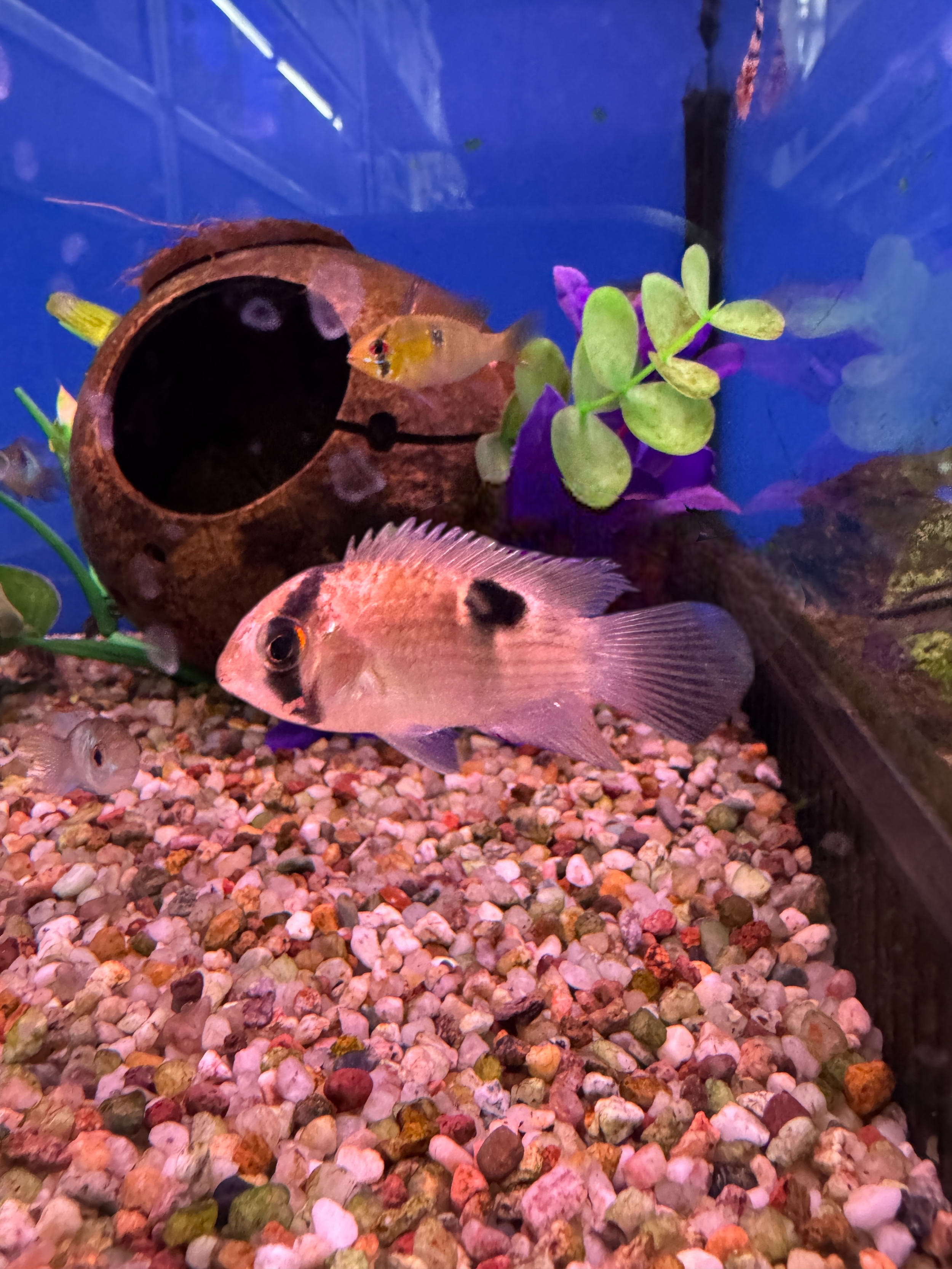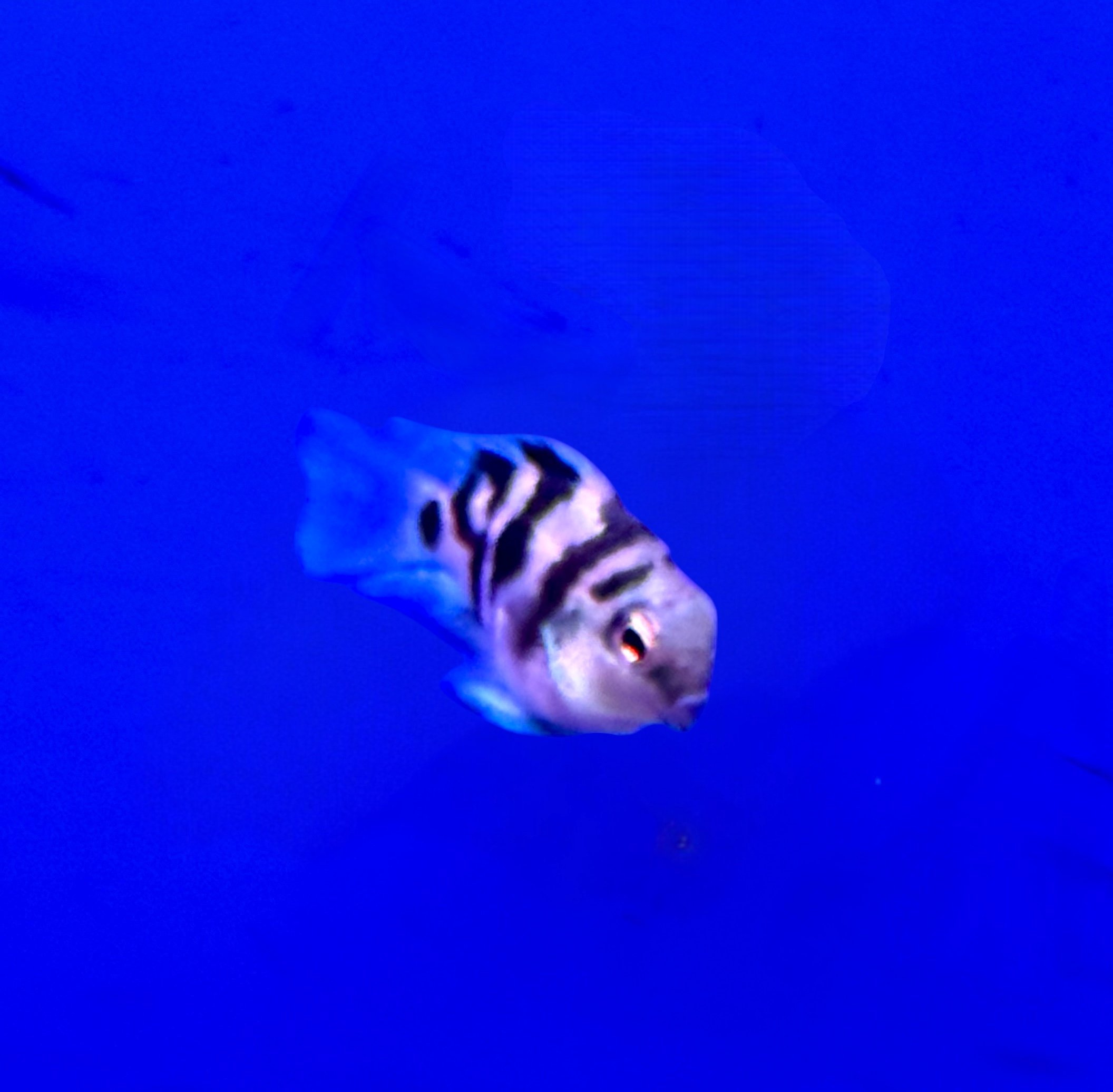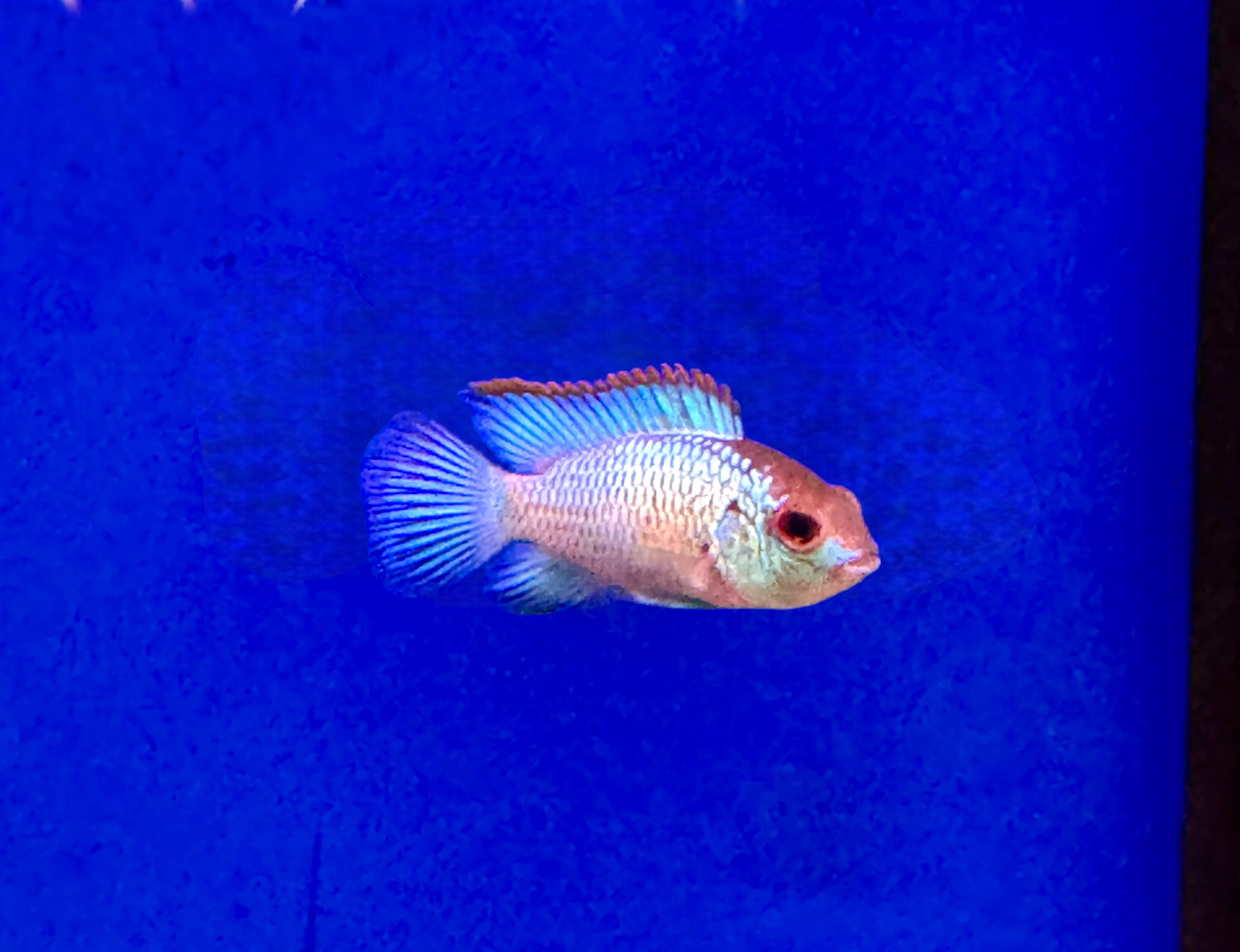Firemouth Cichlid - Thorichthys meeki
Adult Size: Typically grows to about 4 to 6 inches (10 to 15 cm) in length.
Temperature Range: 75°F to 82°F (24°C to 28°C)
pH Range: 6.5 to 8.0
Compatibility: Generally peaceful but can be territorial, especially during breeding. Best kept with other peaceful to semi-aggressive fish.
Minimum Tank Size: 100 liters for a single fish, but a larger tank is recommended for a pair or small group to provide more space and reduce aggression.
Originates from: Central America, specifically the rivers and lakes of Belize, Guatemala, and Mexico.
Ideal Substrate: Fine sand or small, smooth gravel. Firemouth Cichlids enjoy a substrate that allows them to dig and forage, and it helps to mimic their natural habitat.
Ideal Tank Mates Suggestions:
Tetras: Species like Neon Tetras, Cardinal Tetras, and Black Skirt Tetras.
Barbs: Species like Cherry Barbs and Rosy Barbs.
Danios: Species like Zebra Danios and Pearl Danios.
Gouramis: Species like Dwarf Gouramis and Sparkling Gouramis.
Catfish: Species like Corydoras and Otocinclus.
Other Peaceful Cichlids: Species like Keyhole Cichlids and Apistogrammas.
Fish to Avoid:
Small, Timid Fish: Species like Neon Tetras and Guppies can be stressed or eaten, especially if the Firemouth Cichlid is in a breeding mood.
Aggressive Cichlids: Species like Oscars, Jack Dempseys, and Red Devils can bully or harm Firemouth Cichlids.
Territorial Fish: Species like Discus and some other dwarf cichlids can become territorial and aggressive, especially during breeding.

